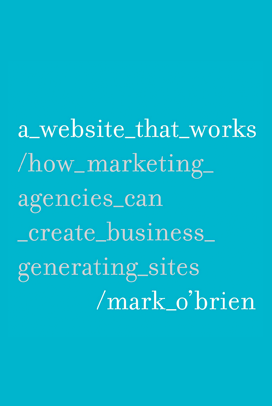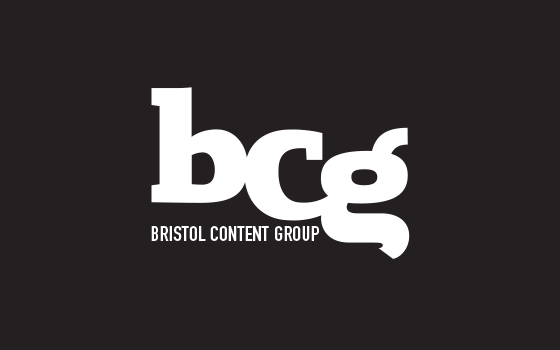Your website is a prospect-nurturing tool. An important part of its job is to attract new users to your site who have not heard about your brand and your services previously. One of your best options for gaining these site visitors with your content strategy is through organic search. This will come as no surprise to those of you accustomed to using “Google” as a verb.
But it may be news to you that the podcast pages on your site are much less likely to draw in organic search referrals than your blog articles, white papers, etc. Essentially, the content crafted to be consumed by the human eye — your intentional written word — performs better in search results’ rankings. Remember that Google and its scraping bots mimic a reader. And readers tend not to digest transcripts.
This doesn’t mean that podcasts shouldn’t be a part of your content plan. If you have strong speakers on your team (or even just a few willing to give it a go), we recommend podcasts for disseminating your thought leadership. While many details go into creating a podcast and getting listeners to discover it in their podcast digestion of choice, there are other components to keep in mind when publishing in order to optimize your podcasts for search engines.
Website Page Structure for Podcasts
Show Title & Metadata
Imagine you’re currently typing into your search bar looking for education about a problem you’re encountering at work. Would you search for a specific podcast looking for an answer? Or even a specific episode of a podcast? Not if you aren’t already familiar with that podcast. Instead, you’re searching for keywords around the issue you’re facing, which is exactly what we recommend our clients include in their typical metadata. But this has seemed to have flown out the window in the case of podcasts, likely because of their unique structure and listings on other platforms. For your podcast pages to perform best in driving organic traffic to your site, your title and metadata should focus on meaningful content as early as possible.
Consider this example: Expert Marketing Matters, Season 3 Episode 12: Are Good Design and Good Marketing at Odds?
An organic visitor wouldn’t search — or care — about what season we’re on or what episode; they want what’s of value to them. So instead, restructure your title to cut right to the chase: Are Good Design and Good Marketing at Odds?
Your viewers will still be able to see recency by date on your insight pages if they’re well organized; they don’t need to know these extraneous details. This will also help to remove duplicative content across your site as you publish more and more episodes and seasons of your podcast(s). And your podcast’s branding can still be effectively displayed on podcast apps and other subscription services.
Summary/Shownotes
Start your podcast publications with intentional content aimed at being consumed by a site visitor reading the page. Doesn’t that seem intuitive? Yes, it likely does, but it’s easily forgotten. Rather than starting your page with the embeddable media player of your podcast episode, open with a summary of the salient points from the recording. Consider what is of most value to your target audience. Make sure to hit on the main points — you may wish to open with a short paragraph and then launch into a bulleted list — and provide relevant links (both internal cross-linking promotions and those to external sites and resources mentioned in the episode).
Media Player
Search engines are becoming increasingly sophisticated, but they are not landing on your pages and listening to your embedded podcast episode. This is why we’ve previously recommended including the transcript on your podcast website pages, but we’re finding that those transcripts on their own are driving a fraction of organic traffic compared to written content. You’re doing your site a disservice by presenting JavaScript as the first item on your page for Google to index. Placing meaningful copy above your media player should help alleviate this problem. That means your media player will now be farther down the page, but it is still vital so be wary of becoming too verbose in your show notes and driving your media player down, down, down, and making the viewer scroll. If you stick to the recommended word range above this should keep your media player in a decent location on the website page, but every site’s column widths are different so take a moment to step back, look at the page’s layout, and customize your show notes’ length for your site.
Key Quotes
If you’re looking to enhance your podcast pages even more, key quotes are a great way to do so. Worried that visitors won’t listen to your whole show, let alone read the whole transcript? Make it even easier for them to digest your content — and work to spark their interest at the same time — by including key quotes that represent the value a listener will glean from your episode. Again, structure these quotes for readability. Someone may have said something great and caused uproarious laughter in the episode, but when taken out of the context the quote loses its emotional power. Choose quotes that stand well on their own and don’t be afraid to edit them to get your point across.
Transcripts
Google knows what a transcript is. And nothing in our research reflects that they penalize a page for including one, but we’re seeing other similar content perform better in search results when written in article format. Site ranking is complicated, but continue to hedge your bets by closing your podcast pages with the transcript. We recommend not getting verbatim transcripts of your episodes as including every “umm” and “uhh” is entirely unnecessary. We prefer to use Rev for transcription services. But keep in mind that inevitably podcast transcriptions are going to be less content rich than written content. When we speak, we use meaningless words more frequently than when we are writing. It is simply a fact of human nature. If you find a way to successfully avoid this, we’d love to learn it.
Use Podcasts to Increase Your Content Production
In addition to all of the above best practices for podcast website pages, there are other ways to leverage your podcasts to increase site traffic. One your biggest opportunities is to create supplemental blog articles and white papers based on your podcasts. Write content that stands on its own. This content will not be duplicative — you’re taking the same subject and tackling it in a different format.
On our podcast, Expert Marketing Matters, we recently tackled podcasting behind-the-scenes and touched upon many of the ideas presented in this blog article. Time will only tell exactly how the numbers shape up between the two, but we promise to report back with data comparing these two content items.
And just as we’ve done there, don’t forget to cross promote between your various types of content. In fact, do one better than we have here and get your links in early so that viewers can choose their content digestion method of choice.
Have podcasting questions? We’ve created a new way for you to reach out. Contact us at podcasts@newfangled2020.wpengine.com with questions and topics you’d like to see covered.

